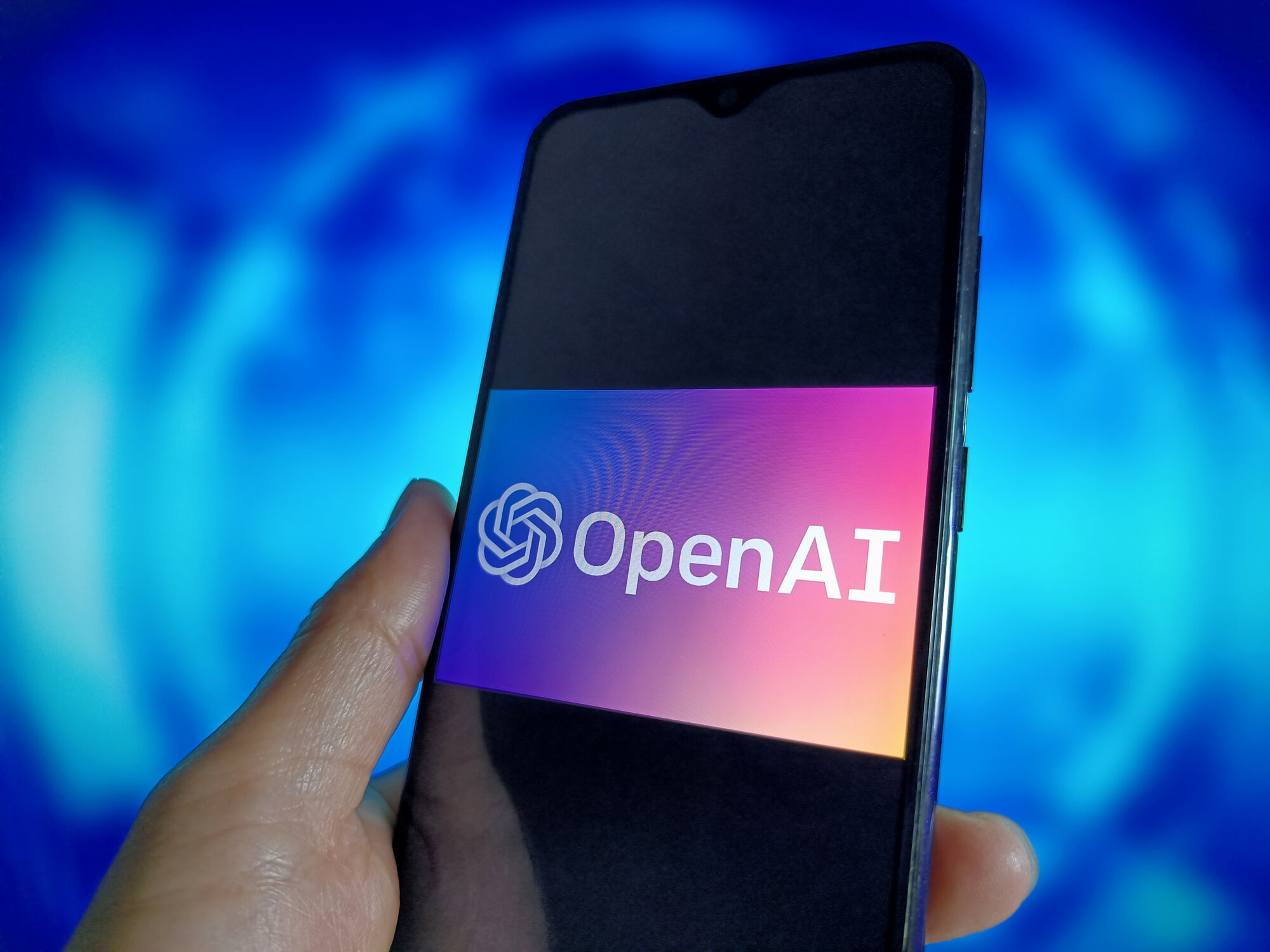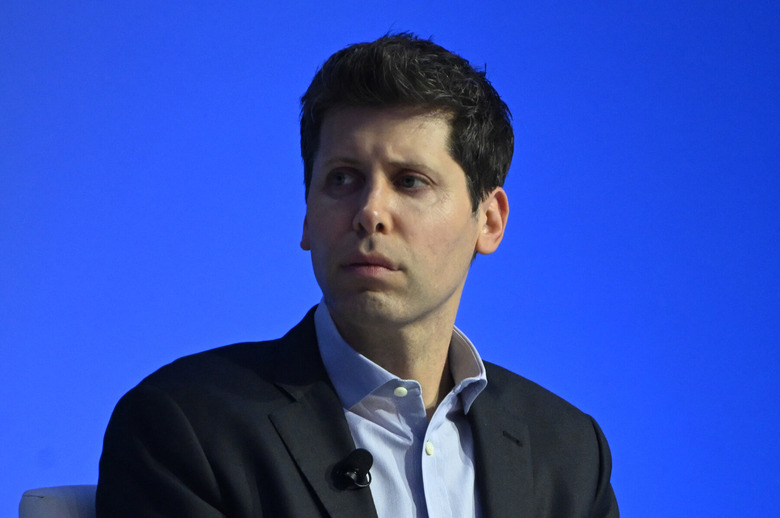Ex-OpenAI Board Members Have No Regrets And Still Think Sam Altman Needs To Go
Anyone who's followed the story of OpenAI for the past year or more would probably assume that the nonprofit's board of directors was surely up to date on ChatGPT before the chatbot actually went live.
But, in reality, that wasn't the case — at least, according to former OpenAI board member Helen Toner. She and her fellow board members actually learned about ChatGPT via Twitter, Toner explained during an interview for The Ted AI Show.
That's one example among many that Toner points to, during her conversation with Bilawal Sidhu., by way of explaining OpenAI's shocking ouster of Altman, its CEO, back in November. And not only did she and fellow board members come to feel that Altman was dishonest in his communications with the board as well as in some of his practices; she also paints him as so power-hungry that the board felt it needed to complete his removal abruptly in order to prevent him from pulling out "all the stops (and doing) everything in his power to undermine the board".
As a reminder: This is the man currently leading the multibillion-dollar AI research lab that is working around the clock to bring computer superintelligence to fruition, something that stands to fundamentally reshape the way the entire world functions.
As expected, Altman went into overdrive once the board fired him, leaning on his Rolodex of Silicon Valley connections and eventually mounting a comeback that not only saw him return as CEO but successfully reorient the makeup of OpenAI's board in his favor. As for why he was cut loose in the first place, Toner elaborates:
"To give a sense of the kind of thing that I'm talking about, it's things like, you know, when ChatGPT came out November 2022, the board was not informed in advance. We learned about ChatGPT on Twitter. Sam (also) didn't inform the board that he owned the OpenAI Startup Fund even though he, you know, constantly was claiming to be an independent board member with no financial interest in the company.
"On multiple occasions, he gave us inaccurate information about the small number of formal safety processes that the company did have in place, meaning that it was basically impossible for the board to know how well those safety processes were working or what might need to change."
Helen Toner (@hlntnr), former OpenAI board member, is finally going on record about firing Sam Altman:
😱 "He gave us inaccurate information about the small number of formal safety processes that the company did have in place."
😱 "When ChatGPT came out, the board was not... pic.twitter.com/9ISgzSEnPh
— Liron Shapira (@liron) May 28, 2024
Her comments certainly fill in some of the missing pieces of the narrative, especially since at the time of Altman's firing OpenAI released a detail-free statement only alluding to Altman not being "consistently candid" with the board.
Continues Toner in the new interview: "Sam could always come up with some kind of innocuous sounding explanation of why it wasn't a big deal or misinterpreted or whatever. But the end effect was that after years of this kind of thing, all four of us who fired him came to the conclusion that we just couldn't believe things that Sam was telling us. And that's a completely unworkable place to be in as a board, especially a board that is supposed to be providing independent oversight over the company. Not just like, you know, helping the CEO to raise more money. Not trusting the word of, of the CEO, who is your main conduit to the company, your main source of information about the company, is just totally, totally impossible."
It should be noted that her interview comes as negative headlines have stacked up in recent days for OpenAI, including the company seeming to play fast and loose with a voice for its chatbot that sounded like Scarlett Johansson's (after trying and failing to secure her approval). The company has also seen a flurry of employee departures in recent days.
Toner and another former OpenAI board member, Tasha McCauley, expounded on all this in a new op-ed for The Economist, arguing that third-party legislation is the only thing that will save the company from itself and from its excesses.
Moreover, while OpenAI's former chief scientist Ilya Sutskever would later change his mind about supporting Altman's removal, Toner and McCauley write that they still stand by their decision that Altman needed to be pushed out of the company. He was fired, they write, because multiple senior leaders at the company shared "grave concerns" with the board, including that they believe Altman has cultivated "a toxic culture of lying" and engaged in behavior that "can be characterized as psychological abuse."

They continue: "In OpenAI's specific case, given the board's duty to provide independent oversight and protect the company's public-interest mission, we stand by the board's action to dismiss Mr. Altman."
And they don't stop there. "We also feel that developments since he returned to the company — including his reinstatement to the board and the departure of senior safety-focused talent — bode ill for the OpenAI experiment in self-governance."
OpenAI has been beset by a wave of departures in the last several days, with the exits including safety experts as well as Jan Leike (who led the alignment team) and Sutskever, one of OpenAI's cofounders. The concerns cited generally revolved around the company prioritizing finances ahead of safety issues.
On Tuesday, the company announced a new safety- and security-focused committee that will be charged with making recommendations to the board. Altman is a member of that new committee, which honestly seems like a pretty on-brand move for him at this point.
Speaking of Altman, Toner added a bit more about him during her recent interview, arguing that his, shall we say, issues predate OpenAI. "I guess the last thing I would say about this is that this actually isn't a new problem for Sam. And if you look at some of the reporting that has come out since November, it's come out that he was actually fired from his previous job at Y Combinator, which was hushed up at the time. And then at, you know, his job before that, which was his only other job in Silicon Valley, his startup Loopt, apparently the management team went to the board there twice and asked the board to fire him for what they called deceptive and chaotic behavior.
"If you actually look at his track record, he doesn't exactly have a glowing trail of references. This wasn't a problem specific to the personalities on the board, as much as he would love to portray it that way."
OpenAI board chair Bret Taylor issued the following statement in response to Toner's interview:
"We are disappointed that Ms. Toner continues to revisit these issues. An independent committee of the board worked with the law firm Wilmer Hale, to conduct an extensive review of the events of November. The review concluded that the prior board's decision was not based on concerns regarding product safety or security, the pace of development, OpenAI's finances, or its statements to investors, customers, or business partners. Additionally, over 95 percent of employees, including senior leadership, asked for Sam's reinstatement as CEO and the resignation of the prior board. Our focus remains on moving forward and pursuing OpenAI's mission to ensure AGI benefits all of humanity."
